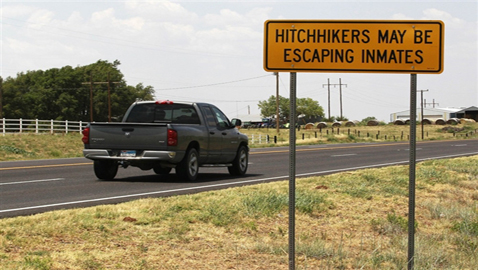Bloom For Some, Gloom For Some: Oil Boom Brings Cheer To Workers But Misery To Employers
Post Views 0
So much so that the gas stations lack enough cashiers to meet the demands of the trucks in the parking lot and the local prison is so short on guards that they can simply walk out of the gates.
The nation’s oil and natural gas boom has pumped in energizing oxygen in a morbid economy but the resultant overflow of jobs has seriously negated the availability of workers for jobs in non-oil fields.
“Help Wanted” signs seem to hang from every possible working area, be it a restaurant, retail shop or gas station. Yet it seems that there are no takers. The shortage is so severe that anyone willing to work and able to work would immediately be taken on board.
LaVern Phillips, president of the Industrial Foundation in Woodward said that “If you can walk and breathe out here, you can get a good job.”
Apart from worker shortage, housing has also become sparse; there are no rooms in hotels and many small businesses are contemplating shutting down.
The county’s unemployment is around 3 percent, which is a whopping 5 percentage points lower than the national average. In some nearby counties the unemployment rate is as low as 2 percent.
Eight inmates have escaped from a minimum-security prison. Prison officials say that insufficient number of guards was one of the causes.
William Monday, the deputy warden of the prison said, that the prison was not fenced and he had just 54 officers to guard the upwards of 1000 inmates, day and night. That works to almost one guard for 20 inmates, overburdening them. Prisoners just have to wait for a momentary lapse on part of the overworked guards and make good their escape.
“I could hire 17 correctional officers today if I could get them to walk through the door,” he said.
But that is easier hoped for than accomplished. A correctional officer stands to make $11.82 per hour initially, compared to the $20 per hour he would make in a drilling job. Moreover, he would not have to undergo extensive background checks that are mandatory for prison workers. One does not have to be a rocket scientist to deduce which one he is likely to opt for.
Not only are the prisons finding it hard to fill vacancies they are finding it hard to hold on to existing workers. Sam Jones, the prison’s security chief, said that two of his officers, one of whom was with them for a decade, left them for the more lucrative oil-pastures.
“I would say at least a dozen have skipped ship for those kinds of jobs. I hope some of those jobs are still available when I retire,” he said sardonically.
One of the worst affected places for worker shortage is Woodward, with a population of 12,000.
Kenny Vassar, at the local Dairy Queen, is contemplating reducing the number of hours the store remains open, because he is unable to find workers to man all the shifts. “I never dreamed we’d have to offer a sign-on bonus to work here,” said Vassar. The sign-on bonus means that he has to pay his workers extra $200 every quarter.
Since his work does not require too much of academic qualifications his workers have been high school kids, wanting to earn extra money to spend with friends or married women trying to buttress the family earnings.
“We’ve got kids that don’t have to work anymore because Dad is making $28 an hour in the oil field, and the wives don’t have to get out and work,” Vassar said. “We’ve got women out there driving oil trucks for $28 an hour.”
One cannot blame the workers for opting for the more rewarding jobs. They pay more money and help them fulfill desires that remained suppressed owing to financial problems.
Tarin Earnest-Smith after ten years as an X-ray technician weighed the pros and cons and shifted to a higher paying job three years ago. She began to earn more than twice what her current job was paying her. “I just liked the money because I could buy land and do more things,” Earnest-Smith said. “I did quite a bit of traveling because I had that extra money.”
Finding ends hard to meet, Paul McFeeters had two jobs, one that had him on the move all the time and the other that required him to be stationed at one place. He used to deliver pizzas and work as a night watchman at a manufacturing facility in Arkansas.
He left both jobs and commenced work with a hydraulic fracturing crew. Now even without adding his wife salary, who used to work as a nurse’s assistant, the couple’s takings have doubled from $2,000 a month to $4,000.
“My wife and I were barely getting by,” said McFeeters, who now works with a Woodward-based crew that helps transition hydraulically fractured wells into production. “Now my wife doesn’t have to work anymore.”
Carl Harmon a grain elevator operator prior to joining a drilling crew operating across western Oklahoma and the Texas Panhandle.
“I doubled my salary doing that,” said Harmon, who said he often works 60 to 80 hours a week on the same crew with McFeeters. “That’s what makes you money in the oil field is the overtime.
Bloom For Some, Gloom For Some: Oil Boom Brings Cheer To Workers But Misery To Employers by Harrison Barnes


 US Dollar Gaining Momentum
US Dollar Gaining Momentum  2006-2015 Median Weekly Earnings of Full-Time Workers in the United States
2006-2015 Median Weekly Earnings of Full-Time Workers in the United States  November Posts Another Strong Job Report
November Posts Another Strong Job Report